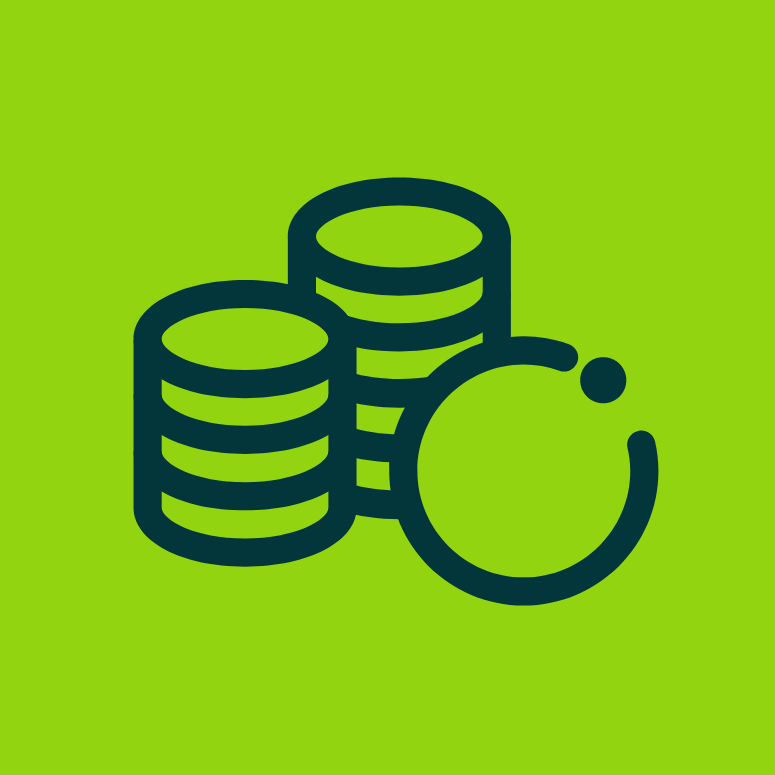Your read progress
Just how linked are money and mental wellbeing?
3 minute read
Updated 15th September 2025 | Published 30th September 2021
.jpg)
In our blog post for Mental Health Awareness Week, we shared some statistics around the effects that debt has on mental health. We think it’s important to continue the conversation all year round about money and mental health, and so the recent research from Claro Money in partnership with Mental Health UK and the Money Charity caught our eye. Their research shows how closely connected the link between money and mental wellbeing can be, not just for those in debt.
There’s a 37% difference in the average mental wellbeingbetween the most and least financially confident. Claro Money’s report describes being highly financially confident as ‘I am very happy with my financial situation’ and low financial confidence as ‘I am extremely worried about my financial situation’.
The research also found that income levels don’t correlate to confidence and literacy with finance. 12% of people earning between £75,000 and £99,000 a year had ‘low’ or ‘low medium’ levels of financial confidence.
Experiencing a negative change to your finances has a much bigger impact on your mental wellbeing than a positive change. The report has found that a negative change to your finances, such as a loss of income or a big unexpected cost, can have a mental wellbeing score that’s 15.5% lower than the national average. However, a positive change, such as a pay rise, doesn’t give you the same boost to your mental wellbeing.
What can you do to start taking control of your finances and making steps towards improving your mental wellbeing when it comes to money?
- Speak with people. Speaking about money openly with other people is sadly still a very taboo topic.
- Have a budget. According to Claro’s research, 27% of millennials and gen Z don’t have a budget for their finances. Understanding what money you have going in and out of your account each month, and whether you’re overspending or not, can help you feel more in control of your finances. There are lots of great tools and resources out there that can help you set up a budget easily.
- Make use of technology. There are so many great apps and tools out there now to help simplify how you manage your money. You can see how other users rate these apps on our leaderboard. For example, Snoop, who won ‘Innovation of the Year’ at our British Bank Awards this year and Money Dashboard, who won our ‘Best Personal Finance App’ award. New app Claro Money offers a financial coaching service to help you get to grips with your money.
- Start saving. You don’t have to be saving £100s every month to be saving money, even £10 a month is a good place to start. Many banks also offer to round up the money you’ve spent on your card to help make it easier to save. Having a pot of money to act as a buffer if something happens to your income can help to give you more peace of mind.
- Take time to educate yourself. Sadly being financially literate isn’t something we’re taught a great deal about at school, but there are plenty of great resources out there that can help get you up to speed. The nominees in our Online Financial Influencer of the Year category from the British Bank Awards are a great place to start and offer content for you via podcasts, YouTube, Instagram, blogs and more.
- Get help. Our blog post from mental health awareness week shares resources for charities and organisations that are available to help you sort out any debt you may have.
You can find out more about Claro Money's Mental Health project here.

Written by Emma
Head of Marketing
Emma joined us in 2021. She is passionate about ensuring others make good choices with their money using all the information and data available.
As Featured By
Join our mission
We use the power of consumer reviews to help increase trust and transparency in financial services and to deliver industry leading insight and events.
Write a reviewExplore our other topics

Guides: Smart money guides

Guides: Smart money tips

Guides: Business guides

Blogs: Money choices



.png)
 (2).png)
